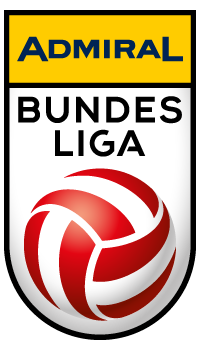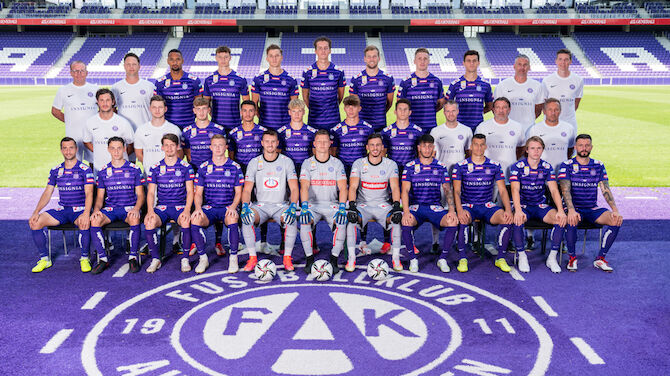Founded: 1911
Home ground: Generali Arena
Location: Favoriten, Vienna
Colours: Violet/White
Manager: Manfred Schmid
Website: www.fk-austria.at
The history:
Austria Vienna are among the most successful and tradition-steeped clubs in the country, and along with city rivals Rapid are one of only two clubs that have never been relegated from the top flight. As well as winning two Mitropa Cups – the forerunner to the European Cup – in the 1930s, the Violets have won more league titles in the Bundesliga era (14) and ÖFB-Cups (27) than any other club, became the first Austrian side to reach a European final in 1978, and were the last team aside from Red Bull Salzburg to win the league in 2012/13.
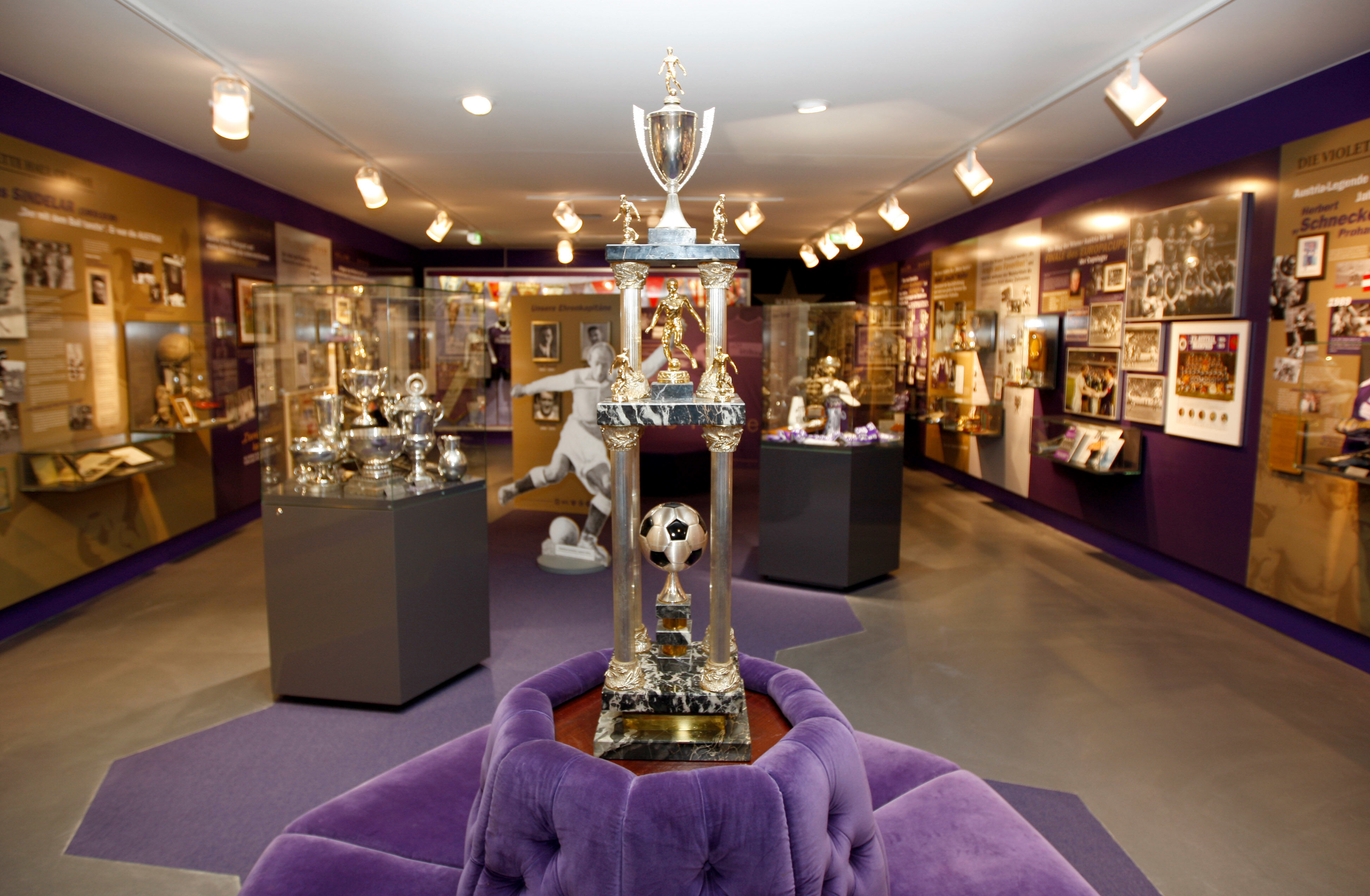
Early years & Mitropa Cup success
Austria Vienna was officially founded on 15 March 1911, after an internal dispute at Vienna Cricket and Football Club prompted several officials and almost the entire first team to break away and form a new club. Wiener Amateur Sportverein, as they were known back then, had several near misses – the 1918 cup final, which they reached, was not completed due to heavy rainfall, and they then lost the 1919/20 title to Rapid on goal ratio – before claiming their first silverware in the 1921 Austrian cup.
With legendary coach Hugo Meisl at the helm and the great Matthias Sindelar (nicknamed ‘The Paper Man’) pulling the strings, Austria Vienna won two league titles and three more cups in the 1920s. A further cup triumph in 1933 saw the Violets qualify for the Mitropa Cup later that year – a prestigious continental competition contested by clubs from Central Europe – which they won thanks to a thrilling 4-3 aggregate victory over Ambrosiana Inter in the final. They then won the tournament again in 1936, beating Sparta Prague 1-0 over two legs to cement their place as one of Europe’s best sides of the interwar years.
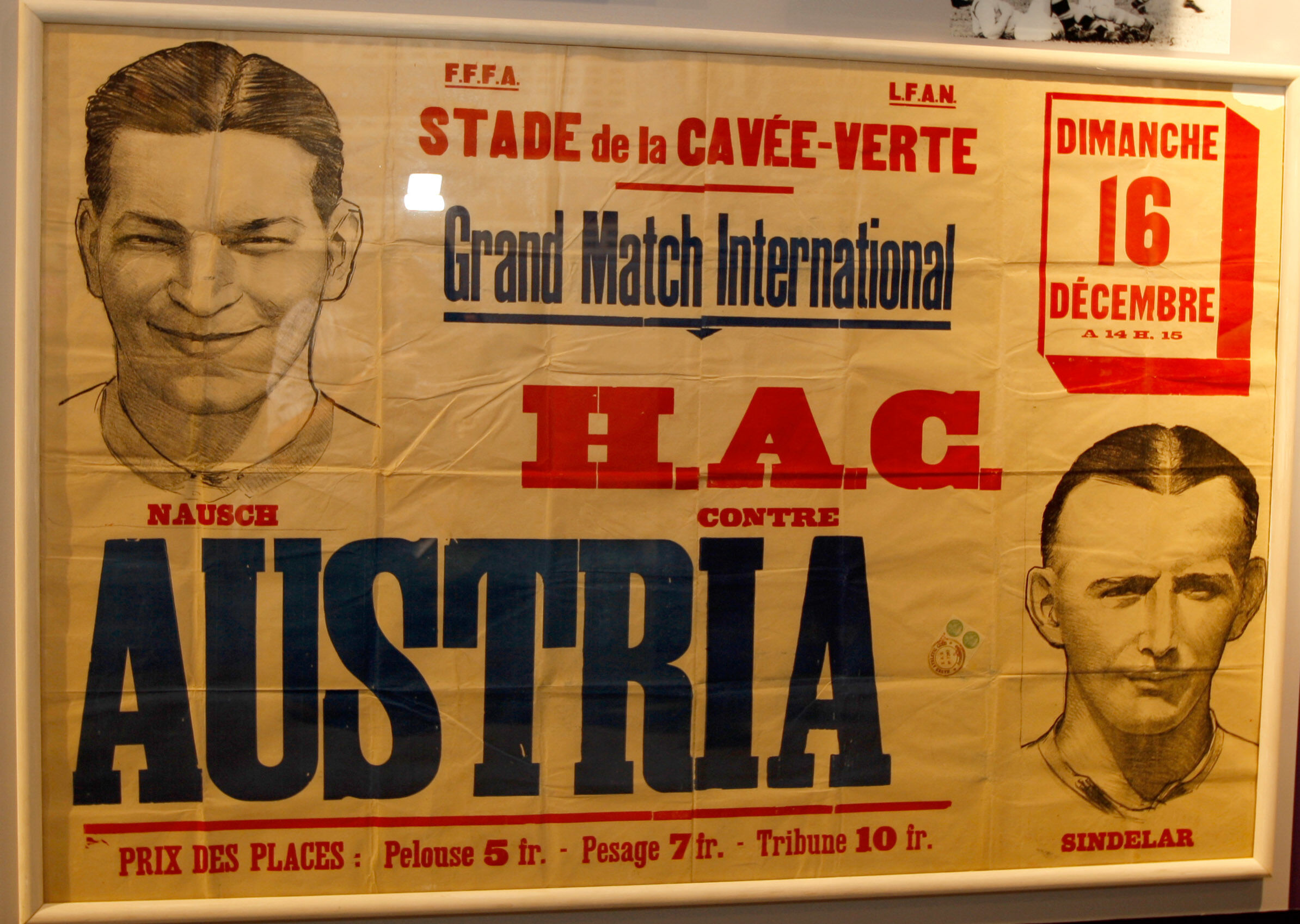
Transformation under “Joschi” Walter
Wartime brought about numerous challenges – the ban on Jewish involvement in sporting activity and the temporary suspension of the club chief among them – but Austria were quick to find their feet again once the conflict drew to a close and won their first league title for two and a half decades in 1949, with additional championships following in 1950 and 1953. But it was not until later that decade, when Josef “Joschi” Walter was appointed as vice-president, that a period of sustained success began.
A forward thinker with a footballing background, Walter eased the club’s considerable financial woes by reducing the squad size and prioritising young players. He also entered into a sponsorship agreement with the Schwechater brewery, which made Austria the first club in European football to have a shirt sponsor. Walter’s contributions laid the foundation for an era of unprecedented domestic success for the Violets, who won a staggering 16 league titles and 12 cups between 1960 and 1993.
Continental highs
Austria’s success was not limited to the domestic stage, however, and in 1978 they became the first Austrian club to reach a European final. But after eliminating Cardiff City, Lokomotiva Kosice, Hajduk Split and Dynamo Moscow to reach the Cup Winners’ Cup final, they were beaten 4-0 by Belgian giants Anderlecht. To prove it wasn’t a one-off, the Violets went on another memorable European run the following season and were only denied a place in the European Cup final by Swedes Malmo in the last four.
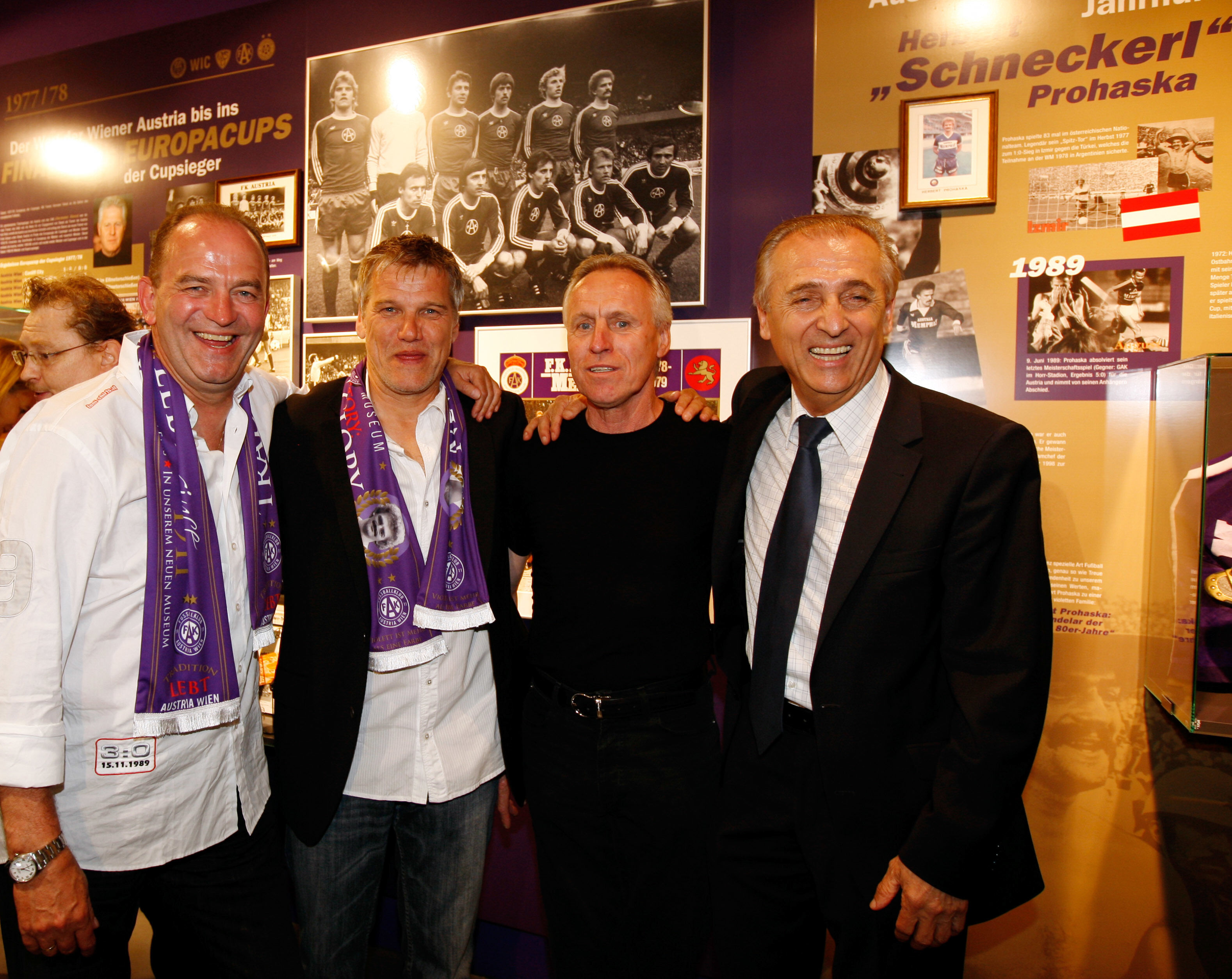
The years that followed saw Austria eliminate a number of elite European clubs including Inter Milan and Barcelona from various competitions, as the likes of Herbert Prohaska (97 goals in 453 appearances), Toni Polster (119 goals in 146 games) and Walter Schachner (72 goals in 101 matches) lit up the continental stage. But after latter-stage defeats to Real Madrid, Tottenham and Liverpool in the mid-80s, the Violets began to fade away as a European force and – bar a 2005 UEFA Cup quarter-final against Parma, which they lost on away goals – never again came close to continental success.
The Magna era
They might have kicked off the 1990s with three consecutive Bundesliga titles, but the departures of key players combined with financial problems meant that the Violets would have to wait a full decade before their next league crown in 2002/03. By that point the club was operating under a different name, having been renamed FK Austria Memphis Magna after their new main sponsor in 1999.
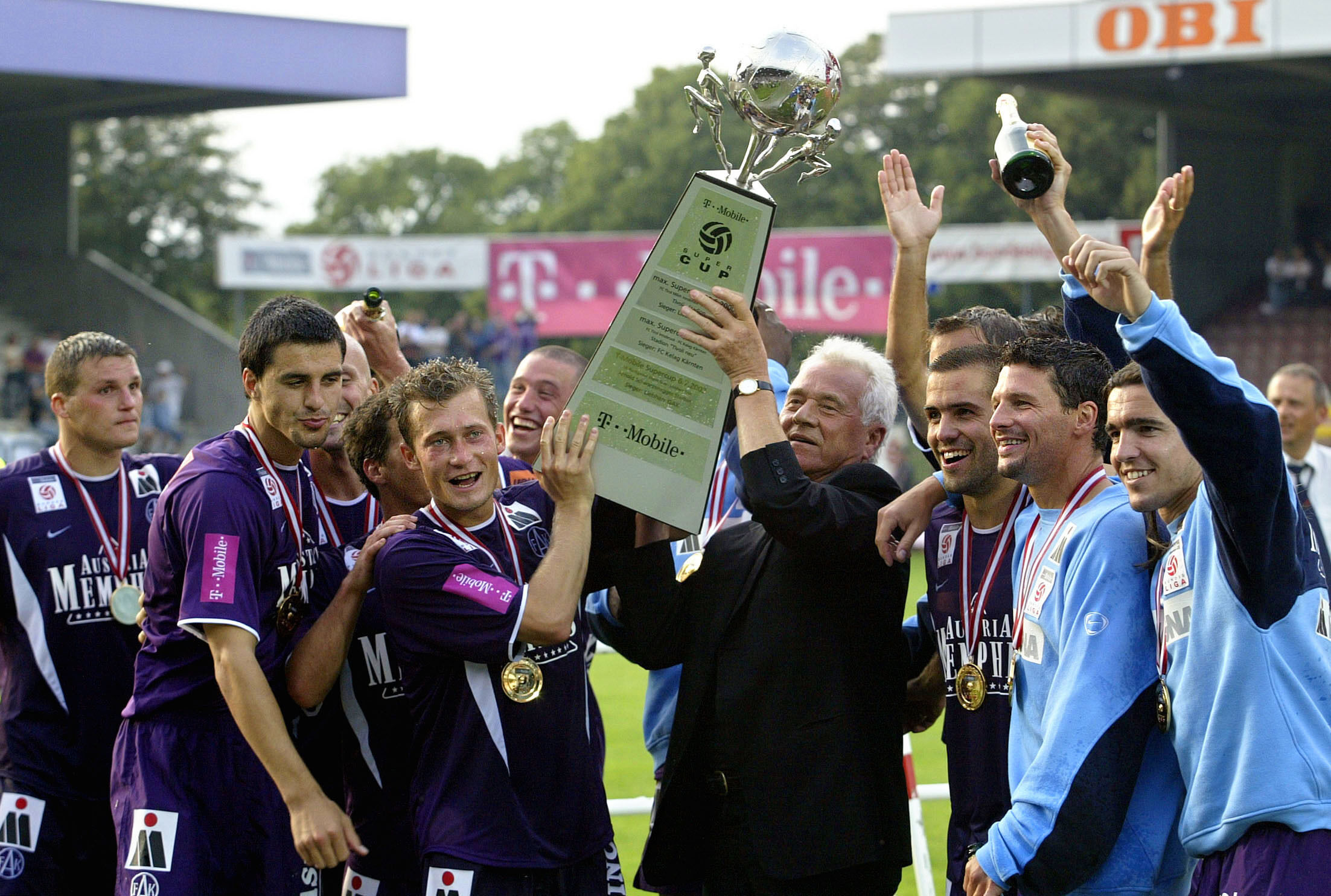
But they reverted back to their former name after Magna pulled out during 2005/06 – the season in which Austria won its 23rd title. Their 24th and most recent league title came in 2012/13, making the Violets the last Austrian club aside from Red Bull Salzburg to win the Bundesliga and qualify for the Champions League. Unlike their two previous title-winning seasons, however, Austria did not lift the ÖFB-Cup that year: they were denied what would have been an 11th double after losing to third-division FC Pasching in a shock final defeat. The following season, they finished bottom of a Champions League group including Atlético Madrid, Zenit St. Petersburg and Porto.
Licensing issues
Though Austria did again challenge Salzburg for the title, finishing third and second in two successive seasons, their form fell off a cliff in 2017/18 as they ended the campaign seventh with 17 defeats – the most they have ever suffered in a single season in the Bundesliga era. With the league subsequently expanded to 12 teams and a new format introduced, Austria missed out on a place in the top six in 2019/20 and 2020/21, while simultaneously floundering in the qualifying rounds for European competition.
A turbulent period for the Violets came to a head at the end of last season, when they were initially refused a Bundesliga licence for the 2021/22 campaign due to financial problems. Days later Austria appealed that decision – which would have seen them banished from the top flight and forced to start again in a lower tier – and were granted a licence at the second attempt. That reprieve meant the Violets could extend their proud record of having played in every Austrian top-flight season since the first championship in 1911/12.
The stadium:
Austria Vienna have had something of a nomadic existence, having played home league games at 19 different venues. After starting out at WAC-Platz – then the Austrian national stadium – the Violets moved to the Ober St. Veiter Stadion in Vienna’s 13th district of Hietzing in 1914. They remained there until 1931, at which point they could no longer afford the rent and were forced to look elsewhere for a place to call home. Several changes of venue followed over the coming decades before they moved to their current home, the Franz-Horr-Stadion in the 10th district of Favoriten, for the first time in 1973.
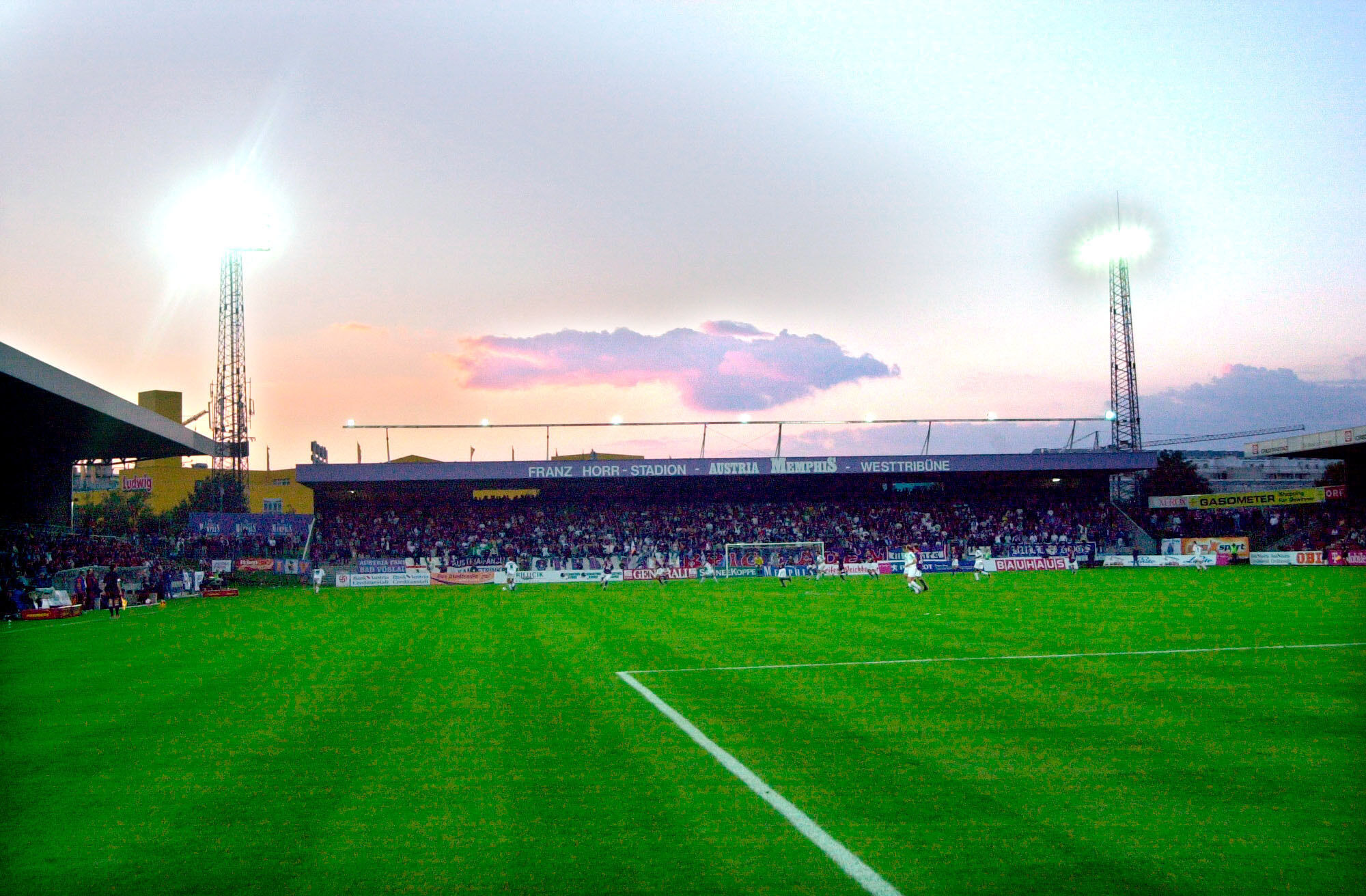
Renamed the Generali Arena for sponsorship reasons in 2010, the stadium underwent renovation between 2016 and 2018 – during which time the Violets played their home matches at the Ernst-Happel-Stadion. The new-look arena can hold up to 17,500 spectators and is a UEFA Category 4 stadium, meaning it can be used to stage games up to and including a Champions League semi-final. The stadium even features solar panels on the roof and won a prize for sustainability even before its completion.
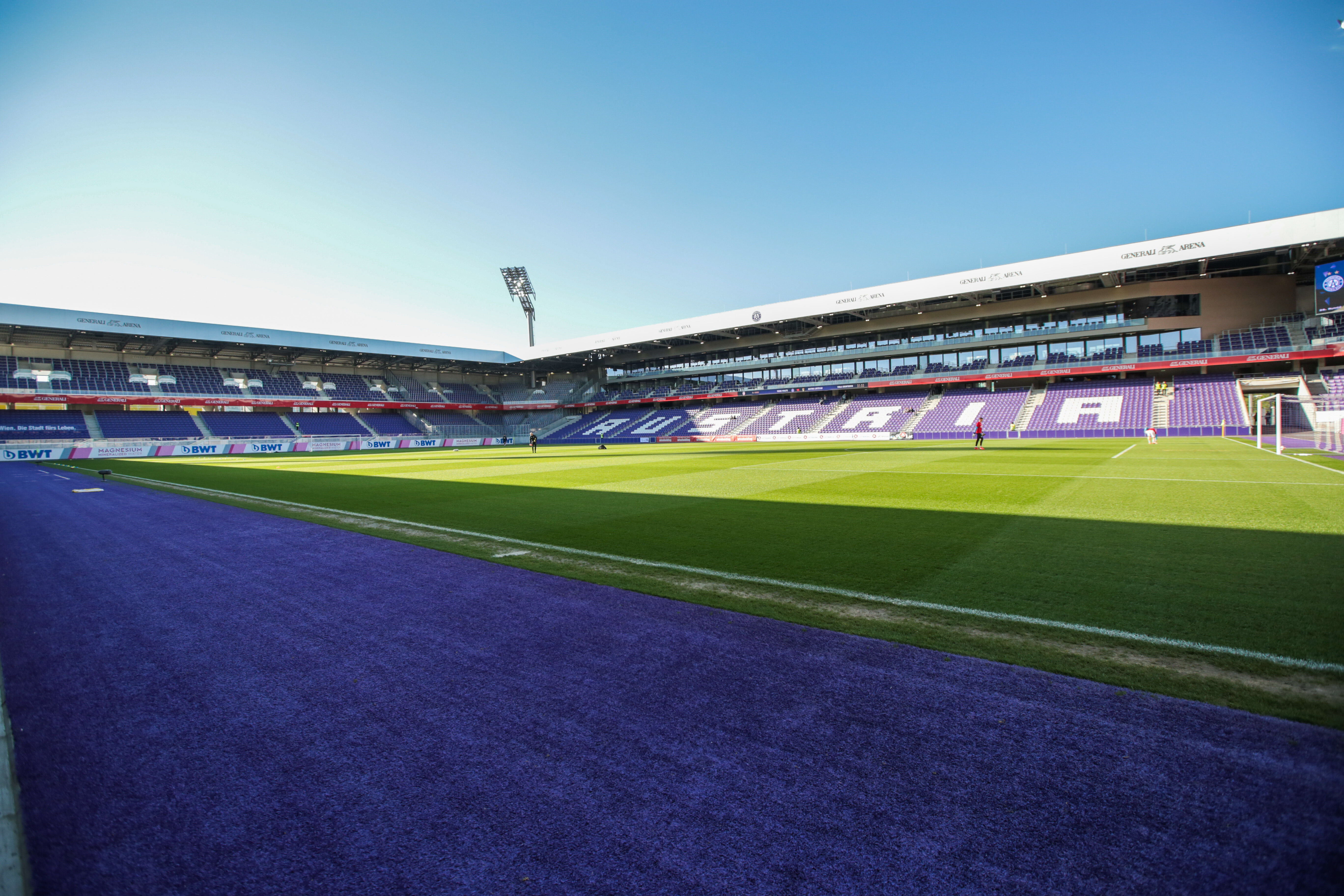
The team:
When Peter Stöger stepped back from his dual role as head coach and sporting director at the end of last season, Austria Vienna appointed Manfred Schmid (coach) and Manuel Ortlechner (sporting director) as his successors. The two are no strangers to the club or each other: Schmid was Stöger’s assistant in the 2012/13 Bundesliga-winning season, while Ortlechner was his captain.
The squad they inherited lost several key members this summer: the attacking duo of Christoph Monschein and Manprit Sarkaria departed for league rivals LASK and Sturm Graz on free transfers, while Patrick Wimmer and Benedikt Pichler moved across the border to Germany, and defenders Erik Palmer-Brown and Andreas Poulsen returned to their parent clubs following loan spells.
Following that exodus, Schmid has largely turned to youth and homegrown talent: only Salzburg have a younger average age than Austria Vienna (23.6), while only Rapid, Altach and Hartberg have fewer overseas players in their squads than the Violets (seven). The standout arrivals are midfielder Manfred Fischer, on-loan forward Noah Ohio and academy product Ziad El Sheiwy (left-back), while Patrick Pentz (goalkeeper) and Marco Djuricin (striker) continue to play key roles at opposite ends of the pitch.
Vocabulary
|
tradition-steeped |
traditionsreich |
|
goal ratio |
Torverhältnis |
|
pull the strings |
die Fäden ziehen |
|
chief among them |
allen voran |
|
lay the foundations |
den Grundstein legen |
|
fade away |
schwinden |
|
pull out |
sich zurückziehen |
|
fall off a cliff |
von der Klippe stürzen |
|
flounder |
stolpern |
|
come to a head |
sich zuspitzen |
|
banish |
vertreiben |
|
solar panels |
Solarplatten |
|
homegrown player |
Eigengewächs |
|
stalwart |
Getreuer |
Die Kollegen von "The Other Bundesliga" porträtieren in regelmäßigen Abständen die Klubs der Liga - auf Englisch mit der dazugehörigen Vokabelauswahl. In dieser Serie sind bisher folgende Klubporträts entstanden:SK Austria Klagenfurt, SK Rapid Wien, SK Sturm Graz, LASK, RZ Pellets WAC, FC Red Bull Salzburg, WSG Tirol ,SV Guntamatic Ried, FC Flyeralarm Admira TSV Egger Glas Hartberg
